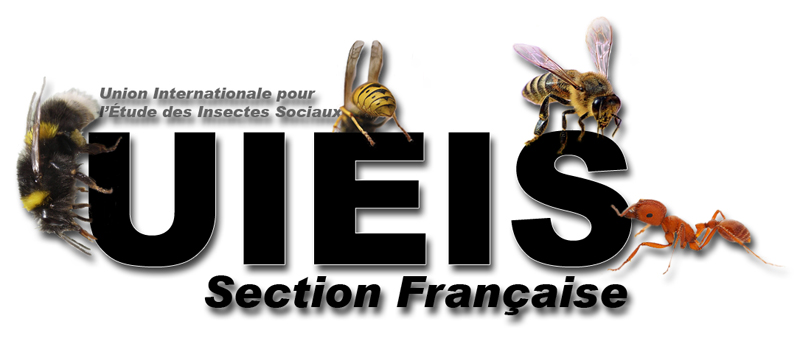
Postdoctoral fellowship on antimicrobial defences in fungus-farming termites
A four-year postdoctoral fellowship on antimicrobial defences of termite fungus cultivars and microbial communities is available from October 1, 2018 in the Section for Ecology and Evolution within the Department of Biology at the University of Copenhagen in Denmark.
The fellowship will be part of a 5-year research project titled Disease-free social life without antibiotic resistance, financed by an ERC Consolidator Grant to Assoc. Prof. Michael Thomas-Poulsen (http://www1.bio.ku.dk/english/staff/?pure=en/persons/227714). The project will be based at excellent research environment of the Centre for Social Evolution (http://socialevolution.ku.dk/), and will involve development of fungus-growing termite colony rearing, infection experiments and sampling for chemical and genomic analyses. The work will involve fieldwork in Comoe National Park, Ivory Coast (https://en.wikipedia.org/wiki/Como%C3%A9_National_Park). The successful applicant will have experience and interest in social insect rearing, infection experiments and defensive symbioses, and will work closely with a microbiologist/molecular biologist PhD student, who will use experimental evolution approaches to explore resistance evolution in target pathogens.
Project Overview
The application of antimicrobial compounds produced by hosts or defensive symbionts to counter the effects of diseases has been identified in a number of organisms, but despite extensive studies on their presence, we know essentially nothing about why these antimicrobials do not always trigger the rampant evolution of resistance in target parasites. Fungus-farming termites have evolved a sophisticated agricultural symbiosis that pre-dates human farming by 30 million years and, in stark contrast to virtually any other organism, does not suffer from specialised diseases. The evolution of defensive compounds from the termite host, its fungal crop, and gut bacterial communities have remained effective for over 30 million years. Recent advances in antibiotic discovery suggests that certain types of antimicrobials may have mechanisms (modes of action) that do not induce resistance evolution, for example if they prevent the formation of new cell walls and thereby restrict cell division. This work will test using comparative analyses of the evolutionary histories, rates of sequence evolution, and modes of action of antimicrobials produced in the symbiosis, whether they have properties that are predicted to not induce resistance.
Qualifications
a) PhD in biology.
b) Experience with insect rearing.
c) Experience with microbiological techniques and infection experiments.
d) An interest in fieldwork and symbiotic interactions.
e) Creativity and ability to be both team-oriented and independent.
f) Embrace of an international research environment and interdisciplinary research.
g) A proven record of excellent English speaking, reading and writing skills.
Procedures and shortlisting
After the expiry of the deadline for applications, the authorized recruitment manager selects applicants for assessment on the advice of the Appointments Committee. All applicants are then immediately notified whether an expert committee will assess their application. Selected applicants are notified of the composition of the committee and each applicant has the opportunity to comment on the part of the assessment that relates to the applicant him/herself. The Head of Department, based on the recommendations of the assessment committee, will make the final selection of the successful candidate.
Place of employment and principal place of work
University of Copenhagen, Department of Biology, Section for Ecology and Evolution, Universitetsparken 15, Building 3, DK-2100 Copenhagen East. The University of Copenhagen provides a top-notch research environment and the city of Copenhagen provides a vibrant cultural scene.
Terms of employment
The successful candidate will be offered a full-time position for a period of four years, contingent on a satisfactory performance, with the specific intent that it results in production of scientific publications.
Terms of appointment and payment according to the agreement between the Ministry of Finance and The Danish Confederation of Professional Associations on Academics in the State. While negotiation for salary supplement is possible, the starting salary is currently up to 419,771 DKK/year including annual supplement (+ pension up to DKK 71,780).
Further information can be obtained from Dr. Thomas-Poulsen (e-mail: mpoulsen@bio.ku.dk).
How to apply
Applications must include: (1) a cover letter, (2) statement of research interests and reasons for applying to this position (max 2 pages), (3) curriculum vitae (including a list of publications), (4) copies of relevant diplomas (Master or Science and PhD), and (5) the names, e-mails, telephone numbers and addresses of 3 referees. In addition to the fulfilment of the above-mentioned qualifications, the main criterion for selection will be the research potential of the applicant, the match with the project, and good interpersonal skills.
Please forward your application via the job portal of The University of Copenhagen at: http://employment.ku.dk/faculty/?show=147139 . Press « APPLY NOW » to fill in the application form.
Deadline for application is June 3, 2018 at 11:59 PM CET. Applications received after the deadline, not using the online application form, or not including the required documents will not be considered.
The University of Copenhagen wishes to reflect the diversity of society and welcomes applications from all qualified candidates regardless of personal background.
